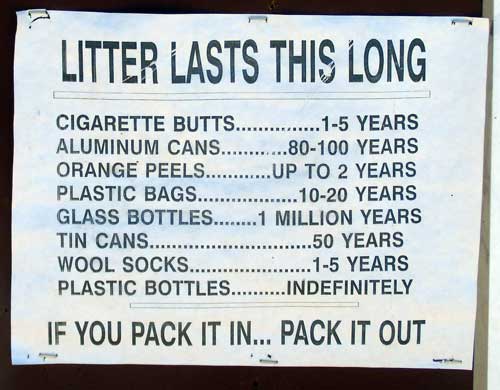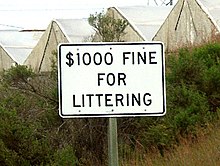Litter in the United States is an environmental issue and littering is often a criminal offense, punishable with a fine as set out by statutes in many places. Littering and dumping laws, found in all fifty United States, appear to take precedence over municipal ordinances in controlling violations and act as public safety, not aesthetic measures. Similar from state-to-state, these laws define who violators are, the type or "function" of the person committing the action, and what items must be littered or dumped to constitute an illegal act. Municipal ordinances and state statutes require a "human action" in committing illegal littering or dumping, for one to be "held in violation." Most states require law enforcement officers or designated, authorized individuals, to "...witness the illegal act to write a citation." Together, prosecutions and punative fines are important in fighting illegal littering and dumping.
A significant portion of litter along roadways in the U.S. is now being attributed to improperly tarped vehicles such as open-bed vehicles as well as trash and recycling collection vehicles that have not been properly secured.






No comments:
Post a Comment